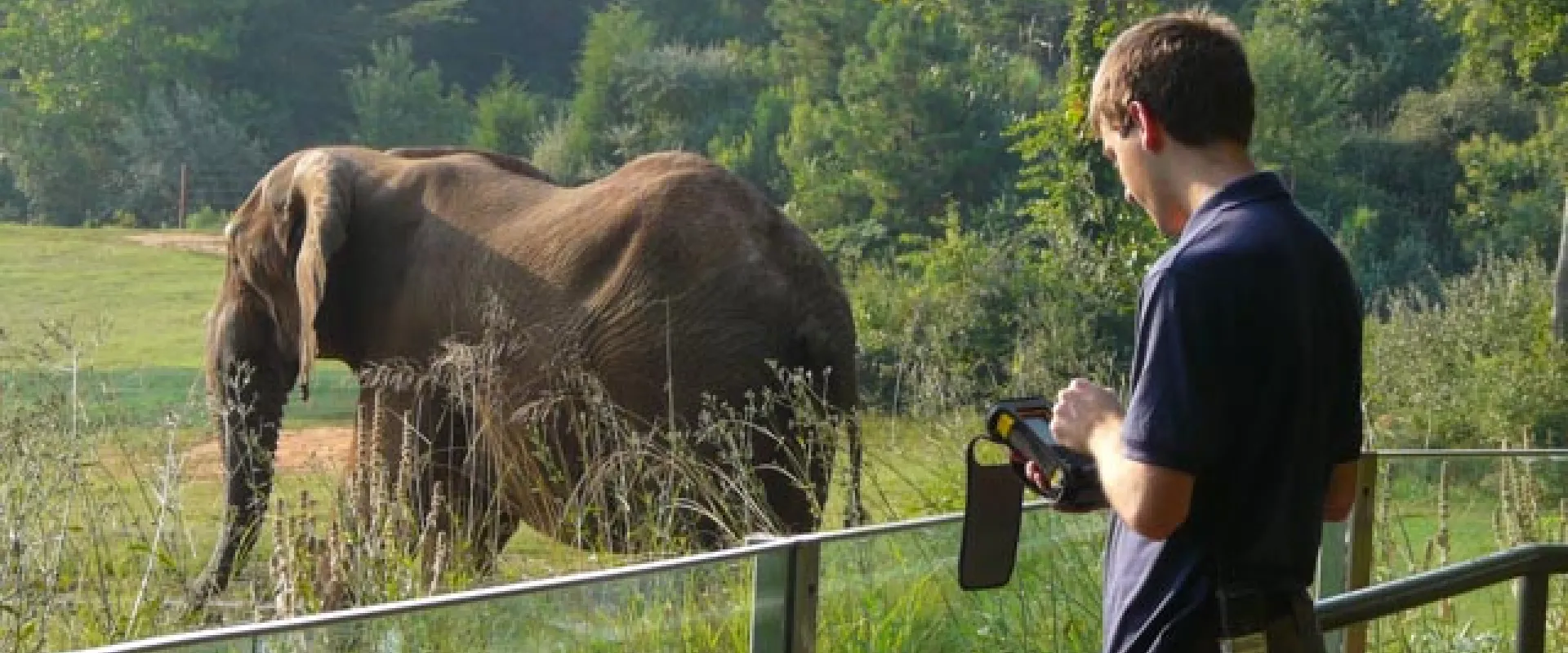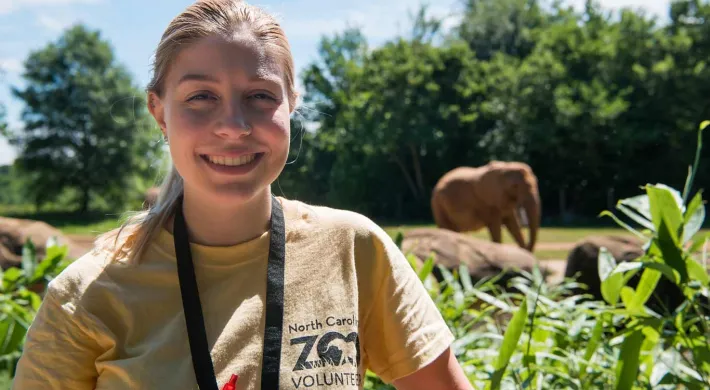At the North Carolina Zoo, our elephant care team works closely with the veterinary and research teams to ensure that the effects of management changes, such as alterations to social structure, enrichment provisions, habitat improvements, and diet changes are carefully monitored and quantified. Student researchers from the Zoo’s NCSU Animal Behavior and Welfare Internship Program have been assisting in this process by studying our elephant herd since 2015 to determine the best practices for ensuring our elephants are active, healthy, and engaging in species-appropriate behaviors.
In the last few years, the elephant care team has been able to use behavioral management techniques to create multiple complex social groupings in our herd of six elephants. Behavioral research conducted in this time has demonstrated that these varied social opportunities have led to positive behavioral changes in all of our elephant residents, but especially in our two males – Csar and Artie. In addition, we have learned more about how our elephants utilize their habitat space and the enrichment offered during the day and how the elephants keep cool in the North Carolina heat by taking advantage of shady spots or going for a swim. Using a camera system, we have also gained valuable insight into the behavior of our herd when they are housed indoors overnight or during the winter, including how much time they spend lying down to sleep.
In conjunction with these social and management changes, we have transitioned to a new diet that involves reduced grain, increased browse, and a new vitamin supplement. This transition is being carefully monitored by veterinary staff and researchers who are assessing micronutrients in browse and in the elephants. The Zoo’s scientists are also using novel stable isotope techniques to go beyond body condition scoring to monitor changes in body fat composition in the elephant herd throughout this diet transition and as exercise levels increase.
All of this information together has proven to be invaluable in evaluating the management of the North Carolina Zoo’s African elephant herd and will continue to be used to inform future plans for habitat improvements and changes to our herd structure.


